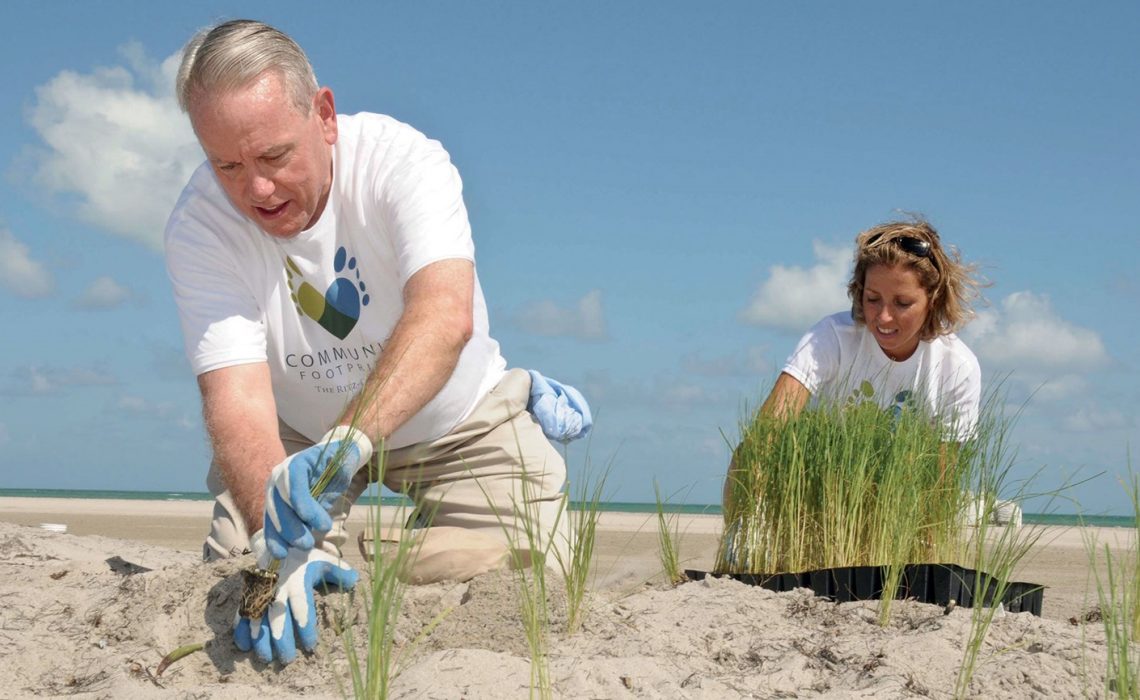
You might also like:
Ritz-Carlton, which has run philanthropic tourism programs for guests at some of its hotels for as long as seven years, will roll out a slate of socially responsible activities for guests at all 92 of its hotels by the end of the year.
Marriott International’s luxury chain said it was responding to more business groups looking to do good while on the road.
The Marriott division, which employs what it calls its Impact Experiences program at almost half of its worldwide hotels, is working with local groups to add ecological or social programs at the rest of its hotels in the next six months, according to Ritz-Carlton spokeswoman Allison Sitch. Ritz-Carlton first launched “voluntourism” programs at some of its properties as part of what was called its Meaningful Meetings initiative in early 2009.
Impact Experiences will enable Ritz-Carlton guests to work with organizations that specialize in one of three causes: environmental sustainability; alleviation of hunger; and improving the well-being of disadvantaged children.
While some of the programs will be geared toward individual guests, the bulk will target group travelers, specifically the corporate market. Sitch said hotel management handles all logistics so that guests merely need to make themselves available for the work.
“This particular rallying cry is around group because it enables us to make a much bigger impact,” Sitch said. “That really is such a consideration for meeting planners today.”
While many of the first programs Ritz-Carlton launched were on the West Coast, some notable programs that have been added since then include work at an organic farm near Arizona’s Ritz-Carlton Dove Mountain; restoration of rainforest and trails near Maui’s Ritz-Carlton Kapalua; and building nests for rare bird species in the Futian Mangrove Natural Reserve Area near the Ritz-Carlton in Shenzhen, China.
As is the case with eco-travel and voluntourism in general, tracking the impact of such programs is difficult. While Marriott each year releases a sustainability report tracking items such as property-level energy and water savings or employee volunteer hours, it does not break out figures on volunteer hours or environmental impact tied to the Ritz-Carlton programs.

Guests from the Ritz-Carlton Club Aspen Highlands do highway work near the resort.
Irene Lane, owner of Virginia-based Greenloons, which specializes in setting up eco-tourism excursions, said that while the efforts are admirable, the lack of data is a potential shortcoming of such programs.
“It’s important to always release the results,” Lane said. “How do you measure the impact you purport to make? That seems to be lacking.”
Still, Lane noted that Ritz-Carlton’s expansion of its program dovetails with two travel trends: a larger number of either higher-end individual or corporate travelers looking to make a difference on an environmental or social front and the propensity of such tourists to seek relatively safe environments in which to do the work.
For example, Lane said threats such as the Ebola virus in Africa and, more recently, the Zika virus in South and Central America and Mexico, have pushed more of her clients toward destinations such as Australia or U.S. national parks.
Or, for example, if a client insists on going to Africa, the destination is more likely to be South Africa than Kenya.
Location notwithstanding, Sitch said the guests fully expect an immersive experience.
“All of the setup is done for them, but this is not a smoke-and-mirrors plan,” she said. “People have to roll up their sleeves and make a difference.”
Source: travelweekly.com
